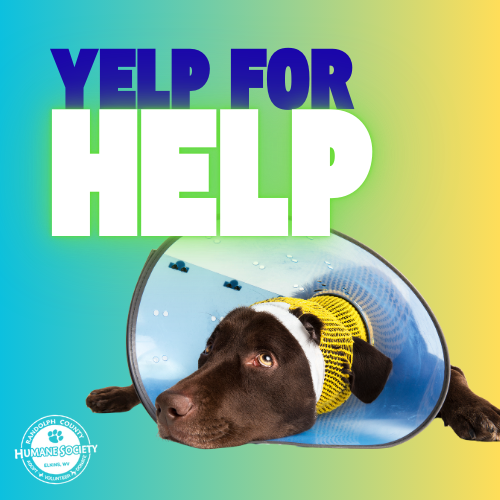Before You Adopt
A Lifetime Commitment
Your pet may live 15 to 20 years, or in some cases even longer. Are you ready for that commitment?
|
Making the Commitment
There are several questions prospective adopters should ask themselves before committing to adopt a pet. If these issues are not considered beforehand, it is usually the animal that suffers the consequences.
But if you’re comfortable with these issues and are ready to adopt, RCHS is happy to help you choose a pet that is the right breed, size and activity level for your family.
- Dogs and cats can live for 15 to 20 years, sometimes longer. Can you make that kind of commitment? Who will be the primary caregiver? When considering a pet for a child, parents must realize that they cannot expect children to understand the required commitment. As they grow up children develop interests outside the home and, along the way, the pet may be lucky to get a pat on the head. Are you, as the responsible adult, in it for the long haul?
- Which pet is right for you and your family? Dog or cat? Large or small? Rottweiler or English Bull Dog? Do you have children? Are you an exercise enthusiast looking for a hiking buddy? Are you sure you’re ready for a puppy? Mature dogs have a lot to offer and might be better suited to your family and lifestyle. Too often animals end up at the shelter because they were chosen on impulse and then later got too big, needed too much exercise, weren’t comfortable with children, or took too much time to train. At RCHS we have many wonderful animals in all ages, sizes, personalities and breed mixes. Consider your living circumstances and lifestyle, and ask yourself what type of pet would fit in best with your family?
- Are you a clean freak? Animals are messy. They sometimes get sick in the house and have “accidents.” Dogs can be smelly and slobbery. They come in from the outside with muddy paws. Most breeds shed their hair. They can be destructive, particularly puppies. Cats jump on countertops and can climb virtually anywhere; they sometimes claw the furniture. Can you live with a litter box? Animals require “stuff”—pet beds, crates, blankets, toys, and feeding stations may not always fit perfectly with your interior decorating scheme.
- Are you or anyone in your family allergic to dogs or cats? Be sure to check that out before considering adopting.
- Do you have a fenced yard? If you’re considering getting a dog, they need exercise, and at a minimum they must be taken out to “do their business” several times each day—regardless of the weather. RCHS believes pets should be considered members of the family, and will not adopt to those who would relegate their pet to strictly outdoor living.
- Do you travel or have to work overtime? Animals can be left alone during the work day, but eight hours is usually the outside limit for dogs. What kind of arrangements would be made in the event that you left town? Would you take your pet with you? Do you have a neighbor or relative who could care for the pet during your absence? Would you hire a house sitter or take your pet to a kennel? Are you willing to pay the expense for these services?
- Are you able and willing to pay for the long-term care of your pet? Pets need annual medical checkups. They need yearly immunizations and sometimes medications because of allergies or infections or topical wounds. Just like people, they can have accidents or become ill. They need to be fed a balanced diet. The ASPCA suggests it costs approximately $400-$700 per year to care for a dog or a cat.
- Are you willing to put in the time to train your pet? Animals require some basic training. Too often pets end up in shelters because of behavior problems that were most likely caused by a lack of training by the owner. A dog can only learn to “come” when he is appropriately trained to “come.” Our pets need training so they know how to behave in the home, on a leash, with visitors, etc. They need to know what we expect of them and training takes time and gentle patience. Our pets want to please us, but we need to lead the way. If you adopt a dog through RCHS, you will receive a complimentary training session from Tina Vial of Pups & Pals Dog Obedience Training.
Notes From Our Volunteer Coordinator
Consider Adopting a Senior Pet
"Adopting an adult or senior pet, whether it be a dog or a cat, is making a statement about you and your commitment to all of our animal companions; that they are not property to be disposed of, discarded, or abandoned because we move, get a divorce, because the children won’t take care of them or go off to college, or we decide to travel and no longer want the responsibility of owning a pet. These are often the reasons adult pets end up in a shelter, waiting for a second chance." Read more.
Seniors for Seniors
A senior pet might be especially appropriate for a senior person! Read more.
Choosing the Right Canine Companion
"When you decide you are ready to bring a dog into your home, do the research. Avoid impulse decision making. Puppies are all small and adorable at the outset, but this common beginning soon branches off in every direction." Read more.
For the Love of Mutts
"Pedigreed dogs are often bred to hunt, to herd, to retrieve and to guard. If you are seeking to fill any of those specific job descriptions, then certainly consider adopting a pedigreed dog. But if you are looking for a family dog, a-middle-of-the-roader, a companion, we recommend that you consider a mixed breed." Read more.
Should I Provide a Pet for My Child?
"We knew we were making another potential 15-year commitment to dog ownership, to puppy training, vet bills and all that comes with providing a forever home. Even though this animal was for our daughter, we knew that it would be our responsibility." Read more.
How You Can Help
Learn more about how you can help the animals by adopting, sponsoring or fostering a pet; donating money or supplies; or volunteering with RCHS.









